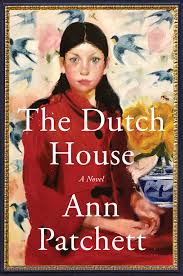Chapter 5
byChapter 5 delves into the evolving emotional landscape of a family trying to navigate shifting relationships, personal ambitions, and the lingering impact of loss. Maeve’s return home for Christmas is fleeting, as she soon departs on a ski trip with friends, subtly underscoring the growing distance between her and the protagonist. While her departure may seem routine, it highlights her ability to integrate into a new social circle, one shaped by affluence and independence, setting her apart from the protagonist, who still grapples with the weight of their shared past. The protagonist, feeling increasingly isolated, begins to recognize the changes within their family dynamic, noting how old traditions are gradually being replaced by new ones, often without his participation.
The distance between the siblings becomes even more apparent when Maeve chooses to remain at school for Easter, a decision that further solidifies the idea that their family rituals are slowly dissolving. The protagonist, left to reflect on this shift, begins to understand that their relationship—once marked by unwavering closeness—now faces the challenge of adapting to their diverging paths. Though Maeve’s choices are not intended to create emotional distance, they inevitably do, leaving the protagonist feeling disconnected and longing for the familiarity of their past interactions. Their shared history, which once served as a source of comfort and solidarity, now feels like a fragile thread stretched across time, struggling to hold them together.
A spontaneous trip to New York provides an opportunity for the protagonist to reconnect with Maeve, offering a brief escape from his internal struggles. As they wander through the bustling streets of Manhattan, memories of their father emerge, coloring their journey with a mix of nostalgia and longing. Their exploration of Brooklyn, a place tied to their family’s history, becomes a symbolic act of retracing steps that once belonged to their father, attempting to piece together a legacy that has become fragmented over time. This encounter with the past not only stirs buried emotions but also raises questions about their own identities and how their father’s choices continue to shape their lives.
The weight of their stepmother, Andrea, lingers over their conversations, serving as a stark reminder of how drastically their family structure has changed. Her influence has altered their home, financial standing, and sense of belonging, forcing them to navigate an unfamiliar and often hostile landscape. Though she is physically absent from their trip, her presence looms large, casting a shadow over their discussions about the past and future. The resentment they feel toward her is palpable, yet it is tempered by an unspoken understanding that dwelling on their losses will not change the reality they now face.
The father-son dynamic is further explored as the protagonist embarks on a reflective journey through Brooklyn, revisiting places that once held significance in their family’s history. This walk through the past is not merely a nostalgic exercise but an attempt to bridge the gap between what was and what remains. Stories of their mother, a figure who has been absent yet ever-present in their consciousness, resurface, adding complexity to their understanding of their family’s past. Though she no longer plays an active role in their lives, her choices continue to shape their perceptions, creating an emotional conflict between resentment and a lingering desire for clarity.
Themes of memory, loss, and personal identity are woven throughout the narrative, emphasizing the protagonist’s struggle to reconcile with his family’s fractured history. The conflicting emotions surrounding both his mother and Andrea add depth to his internal conflict, illustrating the difficulty of separating past grievances from present realities. Each moment of connection with Maeve offers temporary relief from these unresolved feelings, but the weight of their history remains, shaping their interactions and influencing their understanding of themselves.
Maeve’s life in New York presents a glimpse into her aspirations and coping mechanisms, showcasing her ability to carve out a future that is not entirely dictated by their shared past. Her commitment to academic pursuits offers structure and purpose, providing her with an avenue to channel her energy into something constructive. Despite the emotional distance that has formed between them, their bond remains evident in their shared moments of laughter, conversation, and mutual understanding. Their explorations of the city, punctuated by recollections of their childhood, highlight the enduring nature of their connection, even as they forge separate paths.
In the end, Chapter 5 presents a deeply introspective examination of identity, change, and the ties that bind us to our past. Through a combination of nostalgic recollections and present-day reflections, the narrative captures the protagonist’s ongoing struggle to make sense of his evolving relationships and personal trajectory. The chapter ultimately underscores the delicate balance between holding onto the past and embracing the future, illustrating that while change is inevitable, the bonds of family—though tested—can withstand even the most profound shifts in time and circumstance.


